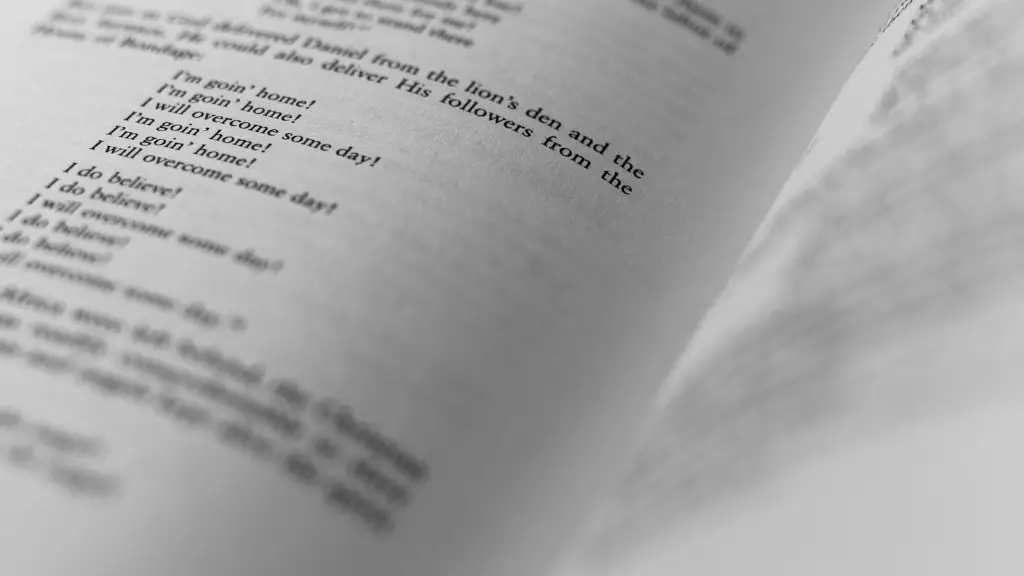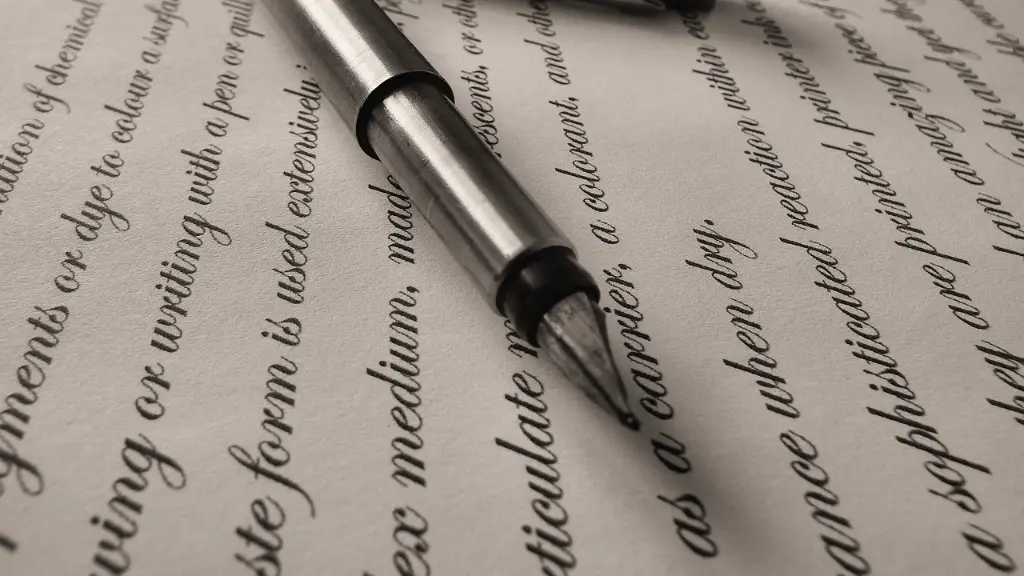What did Langston Hughes Want?
Langston Hughes was a pioneering African-American author and an influential figure in the Harlem Renaissance who sought to promote social justice and equality. Throughout poem-s, stories, and essay-s, he expressed his rage against racial discrimination, prejudice, and segregation and demanded change for African-American rights.
In his famous poem “Let America Be America Again”, Hughes wrote:
Let America be America again. Let it be the dream it used to be.
His work sought to explore and celebrate African-American culture and to challenge the stereotypical notion-s of blackness in the United States. He sought to elevate African-American voices, to challenge the racism and injustices of his time period, and to create a more equitable society for generations to come.
Throughout his writings, Hughes made his voice heard by addressing issues of racism, discrimination and inequality. He wrote candidly and explicitly about the racism and injustice being inflicted on black communities, and he was passionate about exposing and calling out injustice. He was not afraid to use his platform to fight for change, and he believed that visibility was the key to social justice.
Hughes believed that African-Americans should fight for their rights and should not accept conditions of oppression and injustice. All of his works were aimed at inspiring African-Americans to take action and to lead a movement for social change. He wanted African-Americans to come together and to fight for equality.
Moreover, Langston Hughes wanted to document the unique African-American experience and to reclaim the narrative of the black community. His works documented and celebrated the stories of African-Americans and their lived experiences, and he focused his works on capturing African-American perspectives. Through his writing, he wanted to convey the beauty and humanity of African-American life.
For Langston Hughes, the pursuit of equal rights was essential. He wanted to encourage African-Americans to continue fighting for their rights and to raise awareness of the struggles that they faced. He wanted his work to reignite a spark of resistance against injustice and to remind African-Americans of the power of solidarity and collective action.
Social Justice
Langston Hughes was an advocate for social justice and a fierce believer in the power of collective resistance. He wanted to create a sense of solidarity among African-Americans, to empower them to fight for their rights and to reject conditions of inequality and oppression. Through his writing, he sought to inspire the African-American community and to foster a spirit of resistance and hope within them.
Throughout his career, Hughes was active in civil rights movements, fighting for African-American rights and equality. He organized protests, gave speeches, and wrote politically charged works that aimed to challenge the status quo and to amplify African-American voices. He was a powerful and influential voice in the civil rights movement, and his works were an important tool in the advancement of African-American rights.
Langston Hughes believed that education was a powerful tool in the fight for social justice and that access to knowledge could empower African-Americans and lead to meaningful social change. He wanted to ensure that African-Americans had access to education and that they were granted the same educational opportunities as other Americans. He wanted African-Americans to be informed and aware of the struggles and issues facing the community and to be prepared to fight for the rights that they deserved.
Langston Hughes wanted to create narratives that centered on African-American experiences and empower African-Americans to fight for their rights. He was a tireless advocate for social justice, and his works are still impacting African-Americans today. His vision for a more just and equitable society is still alive today, and African-Americans are still fighting for the rights and equality that Hughes envisioned.
Artistic Expression
In addition to advocating for social justice, Langston Hughes also sought to explore and celebrate African-American culture through art and literature. He wrote in a range of literary genres, using poetry, stories, and essays to express his identity and to reflect on the artistic, creative, and cultural realm of African-American life. Content that was censored or suppressed due to his race was documented and presented in Hughes’ works, allowing for a new perspective on African-American life.
Hughes wanted to emphasize the uniqueness and beauty of African-American culture and to use his art to showcase the creativity of African-American communities. He sought to challenge and reject the view that African-American art and culture was inferior and to document African-American experience from an African-American perspective. He wanted to reclaim the narrative and to create works that accurately and honestly depicted African-American experience.
In his essay The Negro Artist and the Racial Mountain, Hughes wrote:
We younger Negro artists who create now intend to express our individual dark-skinned selves without fear or shame.
His works are celebrated today as groundbreaking works of art that capture and celebrate African-American culture. Hughes used his work to illuminate the humanity of African-Americans and to challenge the stereotypes and misrepresentations of black life. His works are a testament to the power of art and to the potential of stories to shape and transform our understanding of the world.
Equality and Opportunity
Langston Hughes also wanted to ensure that African-Americans had access to economic opportunity and that African-American businesses were supported and sustained. He wanted to ensure that African-Americans had access to the same economic opportunities and resources as other groups and that they were not disproportionately excluded from or denied access to the kinds of resources and opportunities that they needed to thrive.
In his poem I, Too, Hughes wrote:
I, too, am America. I am the part you won’t see.
Hughes wanted to ensure that African-Americans were treated with respect, dignity, and fairness and that African-American businesses were not subject to discrimination or exclusion. He wanted African-Americans to have the opportunity to achieve success and to be able to create businesses and build wealth. He wanted to create an environment of economic opportunity and parity for African-Americans and to work towards the eradication of economic inequality.
Langston Hughes wanted African-Americans to have the same opportunities for success as other Americans and to be able to achieve their goals and dreams. He wanted African-Americans to be able to access the resources and opportunities that they needed in order to thrive and to be active participants in the economic life of the nation.
Equality in Education
Lastly, Langston Hughes wanted African-American students to have access to quality education and to be able to pursue their academic dreams without barriers. He was an outspoken advocate for desegregating schools and for providing African-Americans with the same resources and access to educational opportunities as other students.
In his poem I, Too, Sing America, Hughes wrote:
I am the darker brother. They send me to eat in the kitchen when company comes.
Hughes saw education as a critical tool in the fight for equality, and he wanted African-American students to have the same opportunities for advancement as other students. He believed that access to education was essential for African-American empowerment, and he wanted African-American students to be able to take pride in their education and to be given the resources and opportunities to thrive.
Hughes’ work has been an enduring source of inspiration to generations of African-Americans and is still relevant today. He was an influential and iconic figure, and his work has paved the way for progress and social change. His work has had a lasting impact on our culture and our understanding of African-American experience, and his vision of a more just and equitable society is still alive today.





